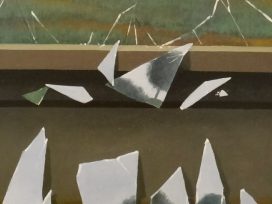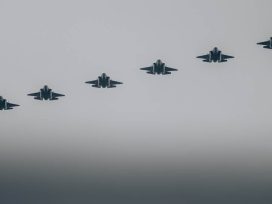May the horror and shame unite us
In moments of intense apprehension and fear, we may well be disinclined to read books, but it is vital to actively maintain channels of mutual support. A statement by the editors of the Russian journal ‘New Literary Observer’.
In the face of immense tragedy, our thoughts are with all those suffering as a result of this war and this madness. We think of people from Ukraine, Russia and elsewhere, shocked and traumatized by what is happening – as we are ourselves. May the horror, pain and shame we feel help to unite us, and not cause further division. In moments of intense apprehension and fear, we may well be disinclined to read books, but it is vital actively to maintain channels of mutual support through social and professional networking.
The New Literary Observer (Novoe literaturnoe obozrenie) has been operating as a publishing house, and as a journal, since it was launched in 1992. These have been difficult years for Russia. The country has experienced numerous social and political upheavals and, as a publisher, we have made every effort to reflect on the processes we have witnessed. The issues posed by post-Soviet cultural and historical anthropology, and post-Soviet identity, remain acute: the values by which people brought up in post-Soviet states live today, their standards, points of reference, motivations and ways of interacting with the external environment are more starkly defined than ever.
What does it mean to be part of a closed community which has inherited the totalitarian predispositions of the past? Can the resulting closed borders be crossed? Is it possible to step out of the confines of a given identity that offers no apparent alternative? Can Russia prevail over its past, as other countries which have experienced totalitarian regimes have succeeded in doing?
Over the last 30 years we have sought to respond to questions such as these, and we continue to do so now. The current situation presents us with new challenges. Should we go on fighting for a different identity for Russia, and how? Can we devise a language for public discourse on crimes committed by the state? What alternatives for the development of our future as a nation-state can we suggest at this time? As we explore cultural history, memory politics, the micro-histories of everyday life, and post-Soviet anthropology, we will keep addressing all these questions together with some of the finest authors writing in and outside Russia.
The New Literary Observer is continuing its work and preparing new issues of the journal, as well as new books, for publication. We say ‘no’ to war!
Published 17 March 2022
Original in English
First published by Eurozine
Contributed by New Literary Observer © New Literary Observer / Eurozine
PDF/PRINTPublished in
In collaboration with
In focal points
Newsletter
Subscribe to know what’s worth thinking about.
Related Articles

House keys recur in the stories of Crimean Tatars and Palestinians displaced from their respective homelands in the 1940s, and Ukrainian citizens fleeing Russian invasion since 2014. Ethnographic research and discourses on art and justice show how objects emblematic of home salvage the history of exiled peoples from oblivion.

Imperial Russia saw the nation as the sea into which all the other Slavic cultures flowed. The idea persists today not only in Russia’s attitude towards its neighbourhood, but also in the way eastern Europe is studied in the West.






